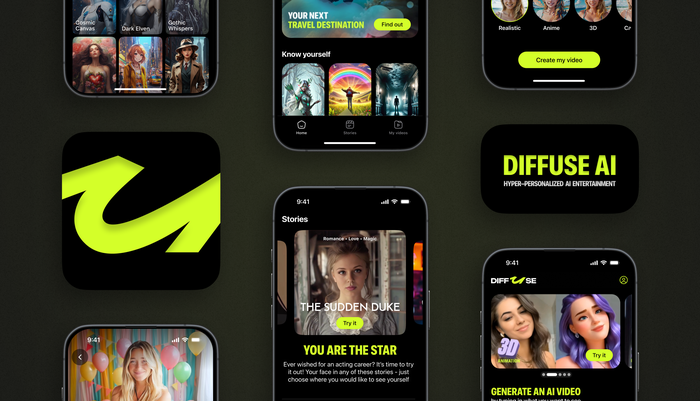A data diagnosis? Why healthcare is ready to connect records in a secure, meaningful way

Amy Waldron
Global Director of Health Plan Strategy & Solutions, Google Cloud
New survey finds healthcare organizations embracing cloud to meet regulatory demands, redefine patient relationships, innovate, and more
Healthcare organizations have long recognized the importance of data interoperability to achieve consistency, clarity, and ultimately greater understanding across their medical records. They haven’t always had the means, methods, or initiative to make that happen — though we appear to have finally reached an inflection point
Notably, since the Cures Act Final Rule* has gone into effect, many healthcare organizations are now prepared to fully embrace data interoperability. Broadly speaking, interoperability helps ensure connections within and across health records in a consistent format that makes them easily accessible and transferrable across the healthcare system.
Indeed, three in four healthcare executives now rank data interoperability as the highest or one of the highest priorities for their organization, according to industry leaders recently surveyed by Google Cloud and Fierce Healthcare.


Data interoperability: opportunities beyond compliance
The final rules established by the Office of the National Coordinator for Health Information Technology (ONC) require adherence to data interoperability standards. Yet most healthcare leaders see this as an opportunity to do more than just check off the compliance box.
In fact, they’ve set their sights on using data interoperability to empower their patients and members with personalized experiences and opportunities for preventative care, with nearly two-in-three survey respondents naming these as a priority. And roughly two-in-five see the potential for improving their bottom lines through faster claims processing and other operational efficiencies.


The main impetus for the ONC rules is to enable data sharing and portability for health plan members. The real opportunity, however, lies in analyzing the vast amounts of healthcare data generated every day to drive better outcomes and improve population health, while protecting individual privacy.
“Consumers are accustomed to a more seamless experience in many parts of their lives, including retail and streaming services — largely because of the insights derived from consumer data,” said Rajeev Ronanki, a senior vice president at Elevance Health and president at Carelon Digital Platforms. “It’s now time for the healthcare industry to leverage healthcare data in a secure and responsible way to make care services more predictive, proactive, and personalized.”
Ronanki is among the growing number of healthcare executives who see transformative opportunities in responsible data practices for patients, providers, payers, public health, and society at large. “By better understanding population-level and individual-level data and deriving insights from that data, care providers and other stakeholders will be able to give consumers an enhanced healthcare experience and ultimately improve health outcomes.”
Healthcare organizations fully embracing data interoperability can lead the entire ecosystem forward. The computing power now available to identify trends and patterns in data makes it possible for plans, providers, researchers, and public health officials to collaborate by securely sharing data so they can respond more quickly and accurately to health events at both individual and community levels.


Data interoperability lays the groundwork for advanced analytics
Realizing opportunities for improved health outcomes and social benefits requires more than simply collecting, storing, and securing data.
To make analysis even possible, large cross sections of public, clinical, claims, and prescription data from multiple sources need to be harmonized into a common format — the definition of making data interoperable. This operation requires secure pathways between data sources and a platform that supports common healthcare data formats. The next step is to apply AI and machine learning to the harmonized data for insights that can supplement human expertise.
More than two-thirds of healthcare organizations surveyed by Google Cloud and Fierce Healthcare are not yet implementing AI, mostly because they lack in-house talent. Of that group, more than half say they plan to start using AI and machine learning within the next two years. But whether organizations are implementing AI now or in the future, they should be looking to get their data infrastructure ready now.




Gearing up for artificial intelligence and machine learning
Getting useful insights from AI and machine learning requires huge amounts of data. The cloud, which can scale up storage and computing resources as needed, offers an efficient way to store and process such data. The good news is that healthcare organizations have largely embraced modern cloud infrastructure: almost 75% of respondents said that their organizations have either adopted cloud or a hybrid cloud solution.
But while 69% of healthcare executives agreed that their existing infrastructure meets their current needs, they’re less confident about having the right skills and capabilities to meet their needs in the future. In fact, barely half of those surveyed were confident that their infrastructure will be able to meet future interoperability requirements.
Specifically, healthcare organizations are grappling with how best to ingest, harmonize, and analyze the data that comes from many disparate sources. “We feel least prepared to handle the data management issues embedded in phone call contacts,” said one survey respondent who runs an adult medical clinic.






Data interoperability, meet the data engine
Organizations are thus looking for new ways to ingest, integrate, and harmonize data across all their sources — patient or member records, operations, research, and public databases — so they can quickly analyze it to make smarter, faster decisions, and gain insights to help design programs that promote health.
It’s one of the main reasons Google Cloud developed the Healthcare Data Engine — to help organizations of all sizes and missions to make more sense of all the information at their fingertips and hidden away in old records. Our Natural Language Processing API is particularly effective for the way it can help extract valuable medical insights from unstructured text such as clinical notes and research publications.
The real opportunity, however, lies in analyzing the vast amounts of healthcare data generated every day to drive better outcomes and improve population health, while protecting individual privacy.
Healthcare organizations have already been using Google technology to transform data interoperability into strategic initiatives.
“Interoperability enables us to seamlessly move data, and more importantly insight, between various systems,” Richard Clarke, chief analytics officer at Highmark Health, said. “While this is so exciting, by itself it will not generate the better health outcomes and more affordable care that we seek. Enabling behavior change to ensure that data and insights are used will be critical for the full value of interoperability to be achieved.”
Just as words can combine in infinite ways to form meaningful sentences, individual bits of data contain the building blocks of scientific advancement. Vast amounts of data—from notes, photographs, statistics, and reports to test results, medical images, and genetic sequences—are waiting to communicate answers to healthcare’s most elusive questions.
Connecting, processing, and interpreting all these pieces of data will no doubt reveal significant patterns that lead to groundbreaking discoveries. Data interoperability is laying the groundwork for an incredibly powerful new system that can show us the way to better health.



